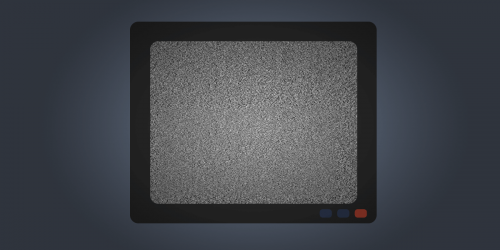After further investigation of reports of Vista refusing to record NBC, we have found at least one case where a user receiving digital TV over-the-air has been blocked from recording TV shows. Justin Sanders, who took this screenshot, says he was recording Raleigh's HDTV channel WNCN-DT1 on his Vista machine when a popup stating that "restrictions set by the broadcaster ... prohibit recording of this program" appeared.
This is significant: this is the first case we've heard of equipment voluntarily obeying broadcast flag-like restrictions on TV content digitally broadcast over-the-air.
The broadcast flag is a small piece of data broadcast alongside a digital TV program. The ability to flag broadcast content was created by the ATSC standard which governs digital TV broadcasts in the United States. By itself the broadcast flag cannot restrict use of broadcast content. Instead, its force comes from a tech mandate law - an FCC regulation - which required manufacturers of DTV-receiving devices to detect and respond to "switched on" broadcast flags. EFF and others opposed the use of the broadcast flag and fought successfully to have the FCC regulation overturned by the courts. We did that because it handed control over your hardware to a remote authority, limited your right to your fair use of media, and would have made illegal open source products like MythTV. As a result of that victory, manufacturers are not legally required to force their devices to detect and respond to the flag.
It would now appear that Microsoft has voluntarily chosen to obey such content restrictions in Vista, despite the successful work of thousands of users to defend Microsoft's right to innovate and our right to fair use. Justin was attempting to record the program on Windows Vista Ultimate using Silicon Dust's HDHomeRun external tuner, which decodes the digital TV signal, and sends it over Ethernet to many types of digital TV receivers, such as MythTV or EyeTV. As Silicon Dust says on its website, their decoder merely passes on the datastream, and does not interpret data like the broadcast flag field itself, so we know that it is Windows alone that has declared that this program should not be recorded.
To be perfectly clear: Microsoft is under no legal obligation to look for and respond in any particular way when it sees the broadcast flag being sent by NBC's digital stations. Any DTV-receiving software technology or device - like MythTV - is free to take the same stream from HDHomeRun and ignore a broadcast flag transmitted with it. In other words Microsoft did not have to build its PC to look for and refuse to record a program which has its flag turned on.
Had consumers not stood up against the FCC'S mandatory flag rule three years ago, alternatives like MythTV would no longer be available. Back then, the FCC tried to force tech companies (and open source developers) to obey the entertainment industry's remote TV control. A coalition of librarians, public interest organizations, and consumer groups successfully challenged the FCC's jurisdiction to impose such a broad regulation in Federal court. After the rightsholders lost in court, they spent millions lobbying Congress to pass a law forcing receivers to obey their command. Your letters and calls stopped that bill.
So why, after all that work, does Microsoft's software appear to honor content restriction? It's hard to say. Was it a content licensing requirement? Microsoft didn't have to do so if it just wanted its devices to decode and display over-the-air digital NBC broadcasts -- just as you don't need to sign a contract in order to decode and display the signals sent over the public airwaves into your living room. American consumers can choose what to do with their digital broadcast TV, just as they have been able with analog broadcast TV.
Perhaps it was an unintended mistake by Microsoft caused by the extensive DRM systems Vista has in place elsewhere. Perhaps Vista has been confused into thinking this open NBC datastream is a restricted CableCard feed, which can (and does) block recording. Or perhaps it it part of Vista's system for obeying CGMS-A, another copy control system that Microsoft voluntarily agreed to implement .
If it's a technical problem, Microsoft should confess, and fix it as soon as possible, before many more digital TV viewers are inconvenienced (and users switch to less encumbered devices in droves).
If, however, it is a deliberate "feature", they have some explaining to do. That would amount to putting the desires of content holders above the best interests of its customers. Even worse, it would mean they kept the deal silent while they marketed their broken hardware to those same unsuspecting customers.
We're now working with Silicon Dust to try to replicate the circumstances in which Vista failed to record, and to do further analysis. We'll keep you updated on what we learn.







